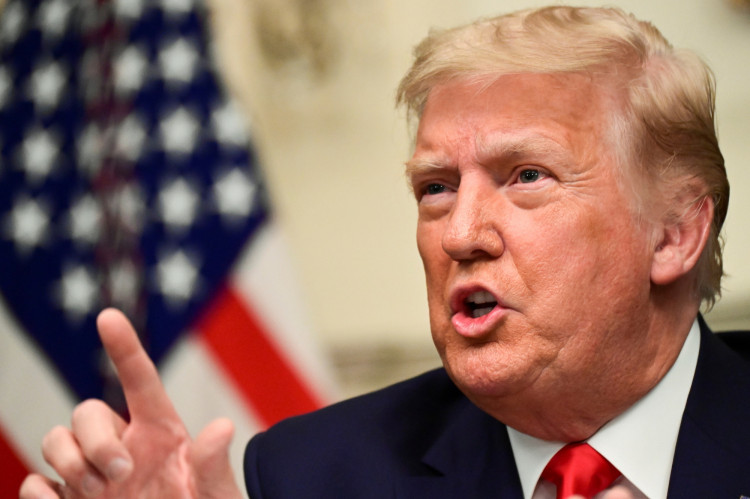A GoFundMe campaign titled "Stand with Trump; Fund the $355M Unjust Judgment" has surged to nearly $1 million in donations, aimed at assisting former President Donald Trump in covering the substantial civil fraud fine imposed by New York Judge Arthur Engoron.
The crowdfunding initiative, orchestrated by Elena Cardone, the spouse of real estate mogul Grant Cardone, emerged in response to the judge's ruling that Trump and top executives at The Trump Organization committed significant fraud by inflating asset values for favorable terms from lenders and insurers.
At the time of writing on Thursday afternoon, it has received $974,483 in donations, just over $25,000 short of $1 million.
As the campaign inches closer to the $1 million mark, the initiative has sparked a heated debate, with some viewing it as a testament to Trump's unwavering support base, while others question the ethics of crowdfunding for an individual of Trump's wealth.
Despite the controversy and calls for a boycott from some quarters of social media, GoFundMe has maintained that the fundraiser complies with its terms of service, emphasizing its neutrality in the matter.
"This fundraiser is currently within our terms of service," GoFundMe's director of public affairs, Jalen Drummond, who previously served as a White House assistant press secretary under Trump, stated.
The GoFundMe's rapid growth is indicative of the polarized reactions to Trump's legal woes, with New York Attorney General Letitia James's office, responsible for the lawsuit, estimating the total penalties, including interest, to exceed $450 million. This financial burden comes on the heels of Trump being ordered to pay $83.3 million in damages in a separate defamation case brought by advice columnist E. Jean Carroll.
Critics of the GoFundMe campaign have taken to social media to express their disdain, with some calling for a boycott of the platform and others questioning the rationale behind financially supporting a billionaire to pay legal fines. The involvement of Elena Cardone in spearheading the campaign adds another layer of complexity, given her husband's significant wealth, raising ethical questions about the use of crowdfunding in such circumstances.
"How many Billionaires do you know that have @gofundme accounts to pay their legal expenses? #BoycottGoFundMe," David Leavitt wrote on X.
"I want everyone to #BoycottGoFundMe Do you agree they should be investigated for possible tax and campaign fraud? Not all contributions to Trump fines are public and it could be used to evade tax/campaign laws," another user wrote.
Despite the backlash, supporters of the campaign argue that it represents a legitimate form of expressing solidarity with Trump, who faces a slew of legal challenges, including 91 criminal counts across four indictments. The former president has consistently denied any wrongdoing, pleading not guilty to all charges.
"#BoycottGoFundMe Whining liberals again. I love it. I don't usually do this; but I think I'll go there just to donate," one supporter wrote on X.
"I'm tired of all the boycotts and cancel culture. Stop calling for people to #BoycottGoFundMe merely because they are allowing a campaign to exist which you don't like. Stop also trying to boycott New York because a judge independently decided that Trump should be fined for fraud." so-called "Resistance" figure Brian Krassenstein wrote.
The GoFundMe campaign's success not only highlights the deep divisions within American society but also underscores the evolving role of crowdfunding platforms in political and legal battles. As Trump's legal expenses mount, the debate over the appropriateness and impact of such fundraising efforts is likely to intensify, reflecting broader conversations about wealth, justice, and political loyalty in contemporary America.






